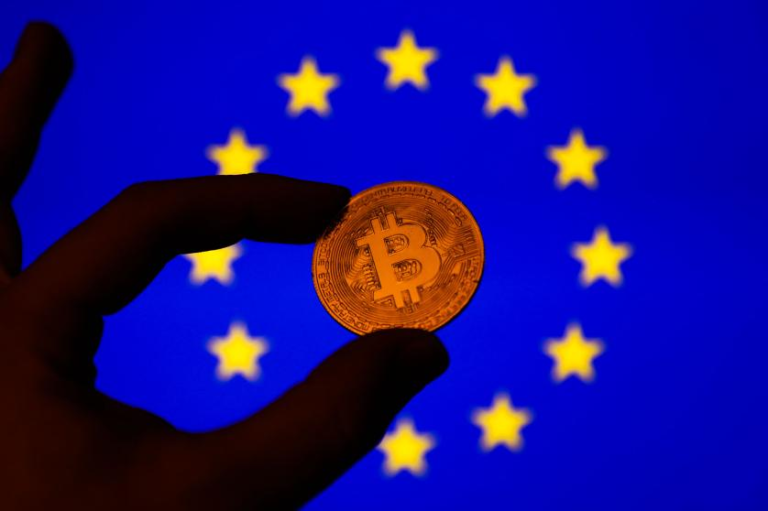Crypto Trump? How Trump’s 2025 policies could reshape Bitcoin, Ethereum, and the entire crypto market

With Donald Trump potentially returning to the White House, the financial and regulatory landscape of cryptocurrency could shift dramatically. His presidency could redefine how crypto is taxed, traded, and regulated, impacting both investors and institutions. This deep dive explores the potential outcomes of a Trump administration on the crypto industry, highlighting three cryptocurrencies that could benefit and three that could suffer under his policies.
Trump’s Relationship with Cryptocurrency: A Mixed History
Donald Trump has historically been skeptical about cryptocurrencies. In 2019, he tweeted that he was “not a fan of Bitcoin and other cryptocurrencies,” emphasizing that their value was “highly volatile and based on thin air.” However, as digital assets have grown into a trillion-dollar market, his stance may have evolved.
During his first presidency, regulatory uncertainty plagued the crypto industry. The SEC aggressively pursued legal action against several blockchain projects, and the idea of a U.S. central bank digital currency (CBDC) was largely ignored. Meanwhile, Trump’s administration took a hard stance on financial privacy, making institutions report transactions above $10,000—a move that conflicted with crypto’s core principle of decentralization.
With a possible return in 2025, the crypto world faces two distinct possibilities: a crackdown similar to 2019 or a strategic embrace of blockchain to counter central bank overreach.
How a Trump Presidency Could Affect Crypto Markets
1. Deregulation and Institutional Investment Could Boom
A hallmark of Trump’s economic policies is deregulation, especially in the financial sector. If this extends to crypto, we could see:
- A friendlier SEC that is less aggressive in lawsuits against crypto firms.
- More ETF approvals, including Bitcoin and Ethereum-based spot ETFs.
- Wall Street institutions expanding their crypto offerings, bringing fresh capital into the market.
2. A Stronger Dollar Could Weaken Bitcoin’s Appeal
Trump has always pushed for a strong U.S. dollar, advocating for policies that boost the traditional economy. If the dollar strengthens, Bitcoin’s narrative as a hedge against inflation could weaken, leading to slower price appreciation.
3. The Rise of Financial Privacy Concerns
Trump has voiced concerns over excessive government surveillance. If his administration shifts against a CBDC (Central Bank Digital Currency) due to privacy fears, this could benefit privacy-focused cryptocurrencies.
4. Tougher Stance on China Could Boost U.S.-Based Blockchain Projects
Trump’s trade war with China led to tariffs and a push for economic independence. If this policy continues, we may see:
- Bans or restrictions on Chinese blockchain companies operating in the U.S.
- Greater investment in American-based crypto projects
- A boost to blockchains focused on decentralized financial independence
3 Cryptocurrencies That Could Benefit Under Trump
1. Bitcoin ($BTC) – A Potential Safe Haven
Bitcoin is the most recognized cryptocurrency and has long been considered a hedge against inflation and economic instability. Under a Trump presidency, Bitcoin could gain from:
- Deregulation: If Trump loosens crypto regulations, Bitcoin could see increased adoption by institutional investors.
- Anti-CBDC Policies: If Trump pushes back against centralized digital currencies, Bitcoin could become a preferred alternative for those seeking decentralized financial systems.
- ETF Expansions: A Trump administration might encourage financial products like Bitcoin spot ETFs, increasing demand and adoption.
2. Monero ($XMR) – The Privacy King
Monero is a privacy-focused cryptocurrency designed for completely anonymous transactions. Its blockchain conceals transaction amounts and participant identities, making it unique in the crypto space. Under Trump, Monero could thrive due to:
- Increased concerns about financial privacy: If Trump opposes excessive financial surveillance, privacy coins like Monero could see wider adoption.
- Pushback against CBDCs: Monero offers a decentralized alternative to government-controlled digital currencies, making it attractive to privacy-conscious investors.
- Use in unregulated financial systems: Deregulation could reduce legal pressures on privacy-focused cryptocurrencies, allowing Monero to operate more freely.
3. XRP ($XRP) – Regulatory Clarity & Banking Integrations
XRP, the native token of the Ripple network, is designed for fast and low-cost cross-border transactions. It stands to gain from:
- Resolution of the SEC lawsuit: If Trump’s administration favors a more business-friendly SEC, XRP could finally achieve regulatory clarity, paving the way for institutional adoption.
- Banking and financial institution adoption: Ripple’s partnerships with financial institutions could expand as banks look for alternatives to SWIFT.
- Integration with decentralized finance: XRP’s efficient transaction model positions it well for a growing decentralized financial ecosystem.
3 Cryptocurrencies That Could Suffer Under Trump
1. Ethereum ($ETH) – The SEC’s Next Target?
Ethereum is the leading smart contract platform, but it could face new challenges under Trump:
- Potential classification as a security: The SEC under Trump may take a stronger stance on Ethereum, complicating its regulatory status.
- Centralization concerns: Ethereum’s shift to Proof-of-Stake (PoS) has raised concerns about validator control, which may lead to stricter regulations.
- Institutional skepticism: Traditional financial institutions may favor simpler, regulated blockchain solutions over Ethereum’s complex ecosystem.
2. Tether ($USDT) – Regulatory Scrutiny Incoming
Tether is the largest stablecoin, but its lack of transparency has long been a concern. Under a Trump administration:
- Increased audit requirements: Tether may be forced to undergo full transparency audits, impacting investor confidence.
- Preference for U.S.-regulated stablecoins: If Trump pushes for stricter financial regulations, alternatives like USDC could take market share from USDT.
- Legal challenges: Ongoing investigations into Tether’s reserves could escalate, leading to market instability.
3. Solana ($SOL) – Victim of Institutional Preference
Solana is a high-speed blockchain known for low transaction costs, but it may struggle under Trump due to:
- Institutional bias toward Bitcoin and XRP: Financial institutions may favor Bitcoin and XRP over experimental chains like Solana.
- Possible restrictions on Chinese investments: If Trump enforces stricter policies on foreign investments, Solana’s ecosystem could suffer.
- Security concerns: Solana has experienced multiple network outages, which could deter long-term institutional adoption.
Final Thoughts: The Future of Crypto Under Trump
A Trump presidency presents a paradox for crypto—on one hand, deregulation and pro-business policies could fuel growth. On the other, a stronger dollar, potential legal battles, and increased surveillance of stablecoins could create headwinds for certain projects.
What is clear is that Bitcoin and privacy-focused projects like Monero stand to gain, while Ethereum, Tether, and Solana could face challenges. As we approach the next election, crypto investors must prepare for a landscape that could shift in unexpected ways.
👉 What do you think? Will Trump’s return be bullish or bearish for crypto? Let’s discuss! 🚀




